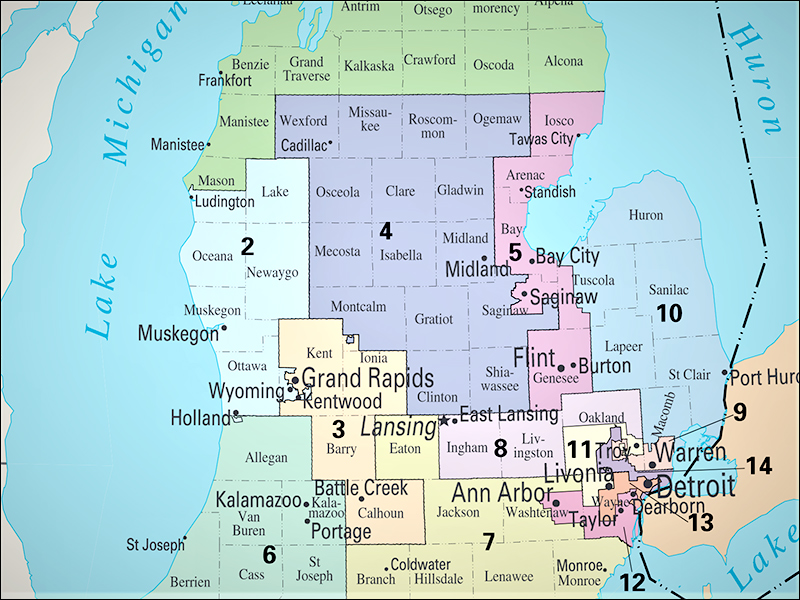By Jim Ellis — Monday, Dec. 4, 2023
Senate
Washington: Sen. Cantwell Easily Leads in New Poll — Public Policy Polling, surveying for the Northwest Progressive Institute (Nov. 14-15; 700 likely Washington general election voters; live interview & text) finds Sen. Maria Cantwell (D), running for a fifth six-year term, leading physician and former gubernatorial candidate Raul Garcia (R) by a 51-38 percent margin. Sen. Cantwell is a clear favorite for re-election in a race that should not become particularly competitive.House
CA-16: Despite Saying No, ex-San Jose Mayor Forms Congressional Committee — Early this year, former San Jose Mayor Sam Liccardo (D) said he was planning to challenge either Reps. Ann Eshoo (D-Atherton) or Zoe Lofgren (D-San Jose) in the 2024 jungle primary. In September, he indicated that he would not run for Congress but instead was pursuing opportunities in the private sector. Adding Rep. Eshoo’s recent retirement announcement to the political equation, Liccardo has now reversed course again and filed a congressional committee with the Federal Election Commission.
Though Liccardo still says he has not yet made a final decision about running, he cited a poll from Public Policy Polling showing him leading what will likely be a crowded field. Liccardo was twice elected to four-year terms as San Jose’s mayor, in addition to winning a pair of four-year terms on the City Council prior to his citywide victory.
Other Democrats in the race are Santa Clara County supervisor and former state Sen. Joe Simitian, Saratoga City Councilman Rishi Kumar, who twice challenged Rep. Eshoo, labor union organizer Evan Bell, and financial advisor Joby Bernstein. Former Menlo Park Mayor Peter Ohtaki and 2018 congressional candidate Karl Ryan are Republican contenders. State Assemblyman Evan Low (D-Campbell) is a possible candidate as is State Board of Equalization member and ex-state Assemblywoman Sally Lieber (D).
The city of San Jose comprises approximately 40 percent of the 16th CD. A total of 85 percent of the district lies in Santa Clara County, with the remaining precincts crossing into San Mateo County. It is probable that two Democrats will advance from the March 5 all-party jungle primary. The candidate filing deadline in this race is Dec. 13. In California, candidate filing is extended five days when the incumbent does not file.
CA-45: Democrats Bunched in New Poll — A new Tulchin Research survey (Nov. 13-19; 500 likely CA-45 jungle primary voters; live interview & online) finds Rep. Michelle Steel (R-Orange County) easily securing first place in the March 5 jungle primary but shows a tightly bunched group of Democrats trying to advance into the general election. According to the Tulchin results, Rep. Steel posts 39 percent support.
Iraq War veteran Derek Tran records 11 percent, just ahead of Garden Grove City Councilwoman Kim Nguyen-Penaloza with 10 percent, and attorney Cheyenne Hunt at 6 percent. Jay Chen, the 2022 finalist who is reportedly considering running again, was not included in this poll.
The 45th District is almost fully contained within Orange County with an added sliver of Los Angeles County and is highly competitive. The FiveThirtyEight data organization rates the seat as D+5. The Daily Kos Elections statisticians rank the seat as the fifth most vulnerable seat in the Republican Conference. President Joe Biden carried the district with a 52-46 percent margin in 2020. Rep. Steel defeated Chen with a 52-48 percent victory margin in 2022.
Louisiana: Court Extends Redistricting Deadline — With Gov-Elect Jeff Landry (R) taking office on Jan. 8, the special federal three judge panel has extended the deadline for the state to draw a Voting Rights Act compliant map, in accordance with the US Supreme Court’s Alabama decision, from Jan. 15-30. It will be interesting to see what the legislature draws because the state is suing over the VRA in another lawsuit. This action concerns the Louisiana legislature maps.
Chances are strong that we will see a similar situation to that of Alabama, where a new African-American influenced district is drawn, and two incumbent Republicans are paired into one district. Democrats are likely to gain one seat when the process eventually concludes.







